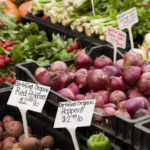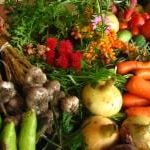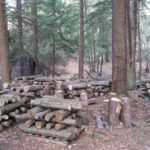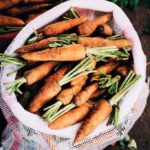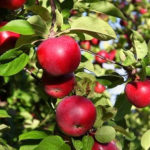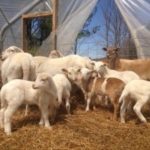Register now for Block 3 courses!
So register now to learn about woodland mushrooms, markets and profits, fruit trees, financial planning, and commercial sheep. Registration closes for block three on Sunday, January 6 at 11:59 p.m. EST.
Markets and Profits
Have an idea for a farm enterprise but not sure if it’s feasible? This online course will help you explore the potential markets and profitability of your ideas. It is perfect for beginning farmers in their first few years of production who are looking for help exploring marketing, developing budgets, and exploring tools to help achieve profitability.
Veggie Farming Part 2- Season-Long Care to Harvest
This follow-up to our Veggie Farming Planning course will cover vegetable production from transplanting to harvest, including information on in-season fertility, integrated pest management, weed control, harvesting strategies, and tips for marketing your products. Be prepared to create an in-season fertility and pest/weed control plan as part of this course.
Many new farmers get started with poultry because it’s a relatively low-investment enterprise with a fairly quick revenue turnaround. The margins can be slim though, and farmers need to develop the necessary skillset to produce a product that is both safe and profitable. This course will help you get started in building a successful poultry enterprise.
Holistic Financial Planning
Struggling to make your farm operation profitable without driving yourself into the ground? This financial planning course will help you with the delicate act of balancing healthy profits with healthy land, a healthy farm family and personal life. This course is intended for farmers with at least one season of experience and some record income and expenses.
Tree Fruit Production
Planting and management of apple and other tree fruit orchards is a rewarding hobby and business, but important considerations must be met to ensure success. This course’s content includes site selection and management, rootstock and cultivar selection, orchard systems, pest and nutrient management, and harvest considerations.
Commercial Sheep Production
Have sheep or thinking about getting a flock? Producers of all experience levels will learn something in this course, from production to marketing, processing, and sales of lamb and sheep products. There is no one right way to raise sheep — just a palette of options for you to choose from, to suit your farming objectives and lifestyle.
Most courses are six weeks long, and each week features an evening webinar with follow-up readings, videos, and activities. Students and their instructors connect through online forums and live chat. If you aren’t able to attend the webinars in real-time, they are always recorded for later viewing.
You can check out the listings on our site for more information on a particular course and the instructors. Course tuition entitles two people from a farm to attend. Discounts for early sign-up and multiple course sign-ups are also available. Learn more about registration, payment, computer requirements, and more on our Frequently Asked Questions page.


